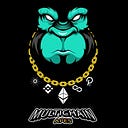What is Web3 and how it can help?
This is only an informative article
What is Web3?
If we look at the current problems of Web2, Web3 is the next logical step to improving the Internet for users. By leveraging peer-to-peer (P2P) technologies like blockchain, virtual reality (VR), the Internet of Things (IoT), and open-source software, Web3 aims to dilute the power held by huge Web2 companies. With decentralization, users can hopefully take back control of their content and ownership of their data.

Key features of Web3
Decentralized: As it is meant to tackle the root of the Web2 problem, i.e., centralization, decentralization is naturally a critical factor to Web3’s success. Besides returning data control to users, companies would have to pay to access their data. Decentralization would make native crypto payments accessible to anyone, and eliminate the need for the expensive intermediaries in the traditional Web2 payment infrastructure.
Permissionless: Instead of a few large entities controlling participation or prohibiting inter-platform communication, anyone can freely interact with others in Web3.
Trustless: The network Web3 is based on would allow users to participate without trusting anything but the network itself.
These ideals will be supported largely by blockchain and crypto.
Potential benefits of Web3
Increased data security
Data held by tech giants in centralized databases are vulnerable, as hackers would need to access only one system to compromise user data. With decentralized solutions to store and manage data, private information can be more securely held.
True data ownership
With one of the focuses of Web3 being data ownership, users will be able to regain control of their data and even monetize it if they wish to do so.
Control over the truth
Without a central power, users will not be subjected to unfair censorship. Without the power of censorship or the ability to erase specific content, it will be significantly harder for large companies to control the narrative of any discourse.
There are other potential benefits that make Web3 superior to its predecessors.
Financial freedom
Web3 will empower users by allowing them to consume, create, and own their content and data. And because Web3 is based on blockchain technology, users will be able to easily access ecosystems facilitating decentralized finance (DeFi) and other tools to achieve financial freedom.
Enhanced social interactions
Like its predecessors, Web3 will continue to incorporate technologies that emerge after blockchain technology. For instance, virtual reality (VR), augmented reality (AR), and artificial intelligence (AI) could add digital elements to Web3 applications to enhance online social interactions.

Already, we’re seeing one such example in the form of the metaverse, a virtual 3D universe users can explore using avatars. Through immersive spaces like the metaverse, users can socialize online, buy virtual land, play games, and even work remotely.
